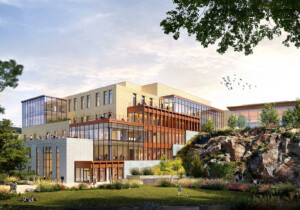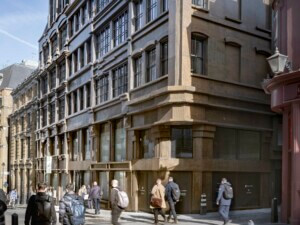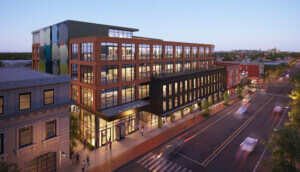Founders Hall, which was inaugurated September 27 as the first fully mass timber building completed on the 800-acre University of Washington campus north of downtown Seattle, reflects the rugged, regional materiality of the buildings that surround it with a brick, glass, and steel-framed facade. Designed by locally headquartered LMN Architects, the 84,800-square-foot building features five floors containing classrooms, spaces for group collaboration, program offices, and a rooftop event space.
Situated within Denny Yard, a historic green space within the University’s North Campus, Founders Hall is part of the Michael G. Foster School of Business. Its mass timber structure and use of cross-laminated timber decking reduce its embodied carbon by 60 percent, and its carbon emissions by over 90 percent, making it the first new development on campus to comply with the University’s Green Building Standards, which were adopted in 2009 as part of the UW Climate Action Plan.
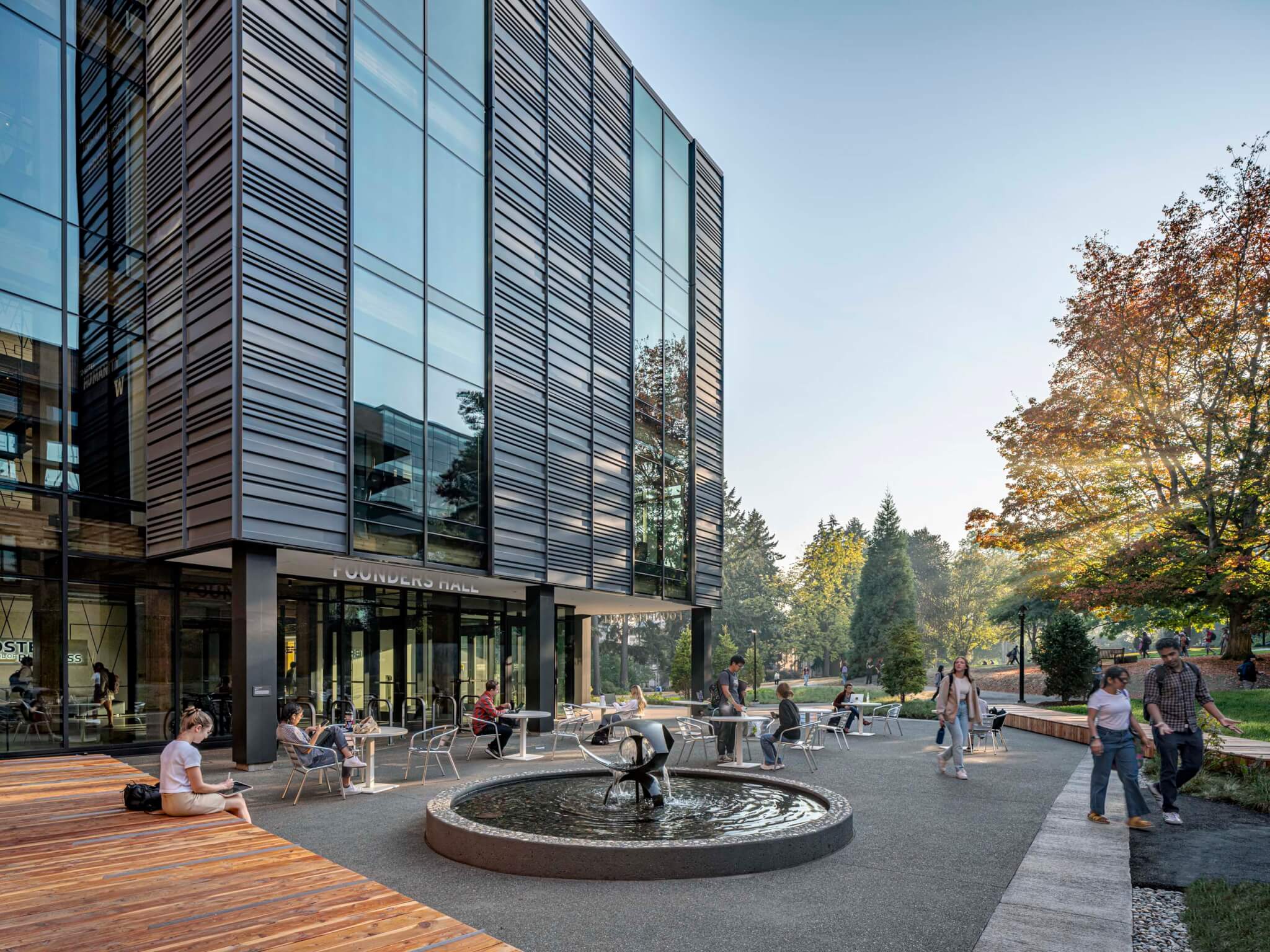
“With the foundation of our design rooted in a mass timber structure, we leveraged both the inherent beauty and sustainability of wood,” LMN Principal Kate Westbrook commented in a press release. “The use of mass timber lowers the project’s embodied carbon substantially while we celebrate the Douglas fir to create a warm and inviting atmosphere on the interior. The exterior architectural expression draws from the material palette established by earlier Foster School buildings and reveals moments of the mass timber structure to hint at the experience within.”
In addition to classroom space and offices, the new building also houses several team and interview rooms designed for competitions. At the core of the building is a wood staircase with steel railings. The faculty offices are positioned among student spaces, facilitating collaboration and cohabitation between students and teachers. Inside, rich Douglas fir contrasts with black metal framing on the railings and massive full-height windows. The facade uses a combination of materials from the surrounding campus buildings, coupling brickwork with darkened metal panels.
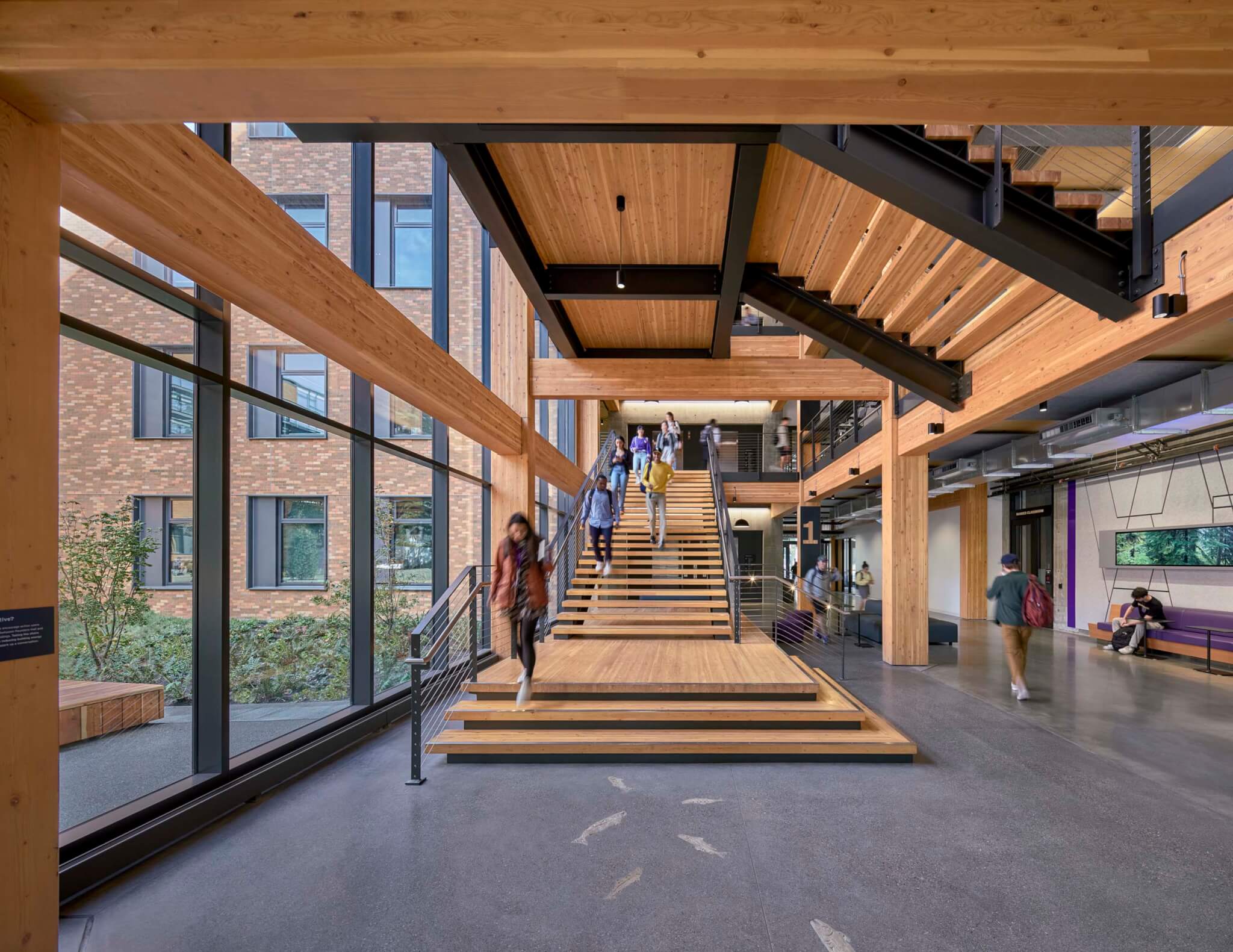
Founders Hall is not LMN’s first building on the U-Dub campus. The firm previously worked on PACCAR Hall, a Foster School of Business building also facing Denny Yard that was also constructed with numerous environmental considerations as a LEED Gold–targeting building. On the university’s East Campus, LMN designed the LEED Silver–certified Bill and Melinda Gates Center for Computer Science and Engineering, a 138,700-square-foot facility completed in 2018. Just to the southeast near Husky Stadium is University of Washington Station, one of several light rail stations designed by LMN for Sound Transit to open within the past several years.
The University requires that new building projects achieve LEED Gold–certification, are at least 15 percent more energy efficient and use 50 percent less potable water than the local city codes require. The building minimizes reliance on air conditioning through use of natural and mechanical ventilation which take advantage of Seattle’s natural climate. Likewise, the project’s architects were careful to preserve the Douglas fir and sequoia trees surrounding the construction site.
“It has been an amazing experience working with the Foster School of Business over the last two decades through shared research, master planning, and now three phases of new buildings. Founders Hall continues the focus on social performance that defined the success of PACCAR Hall but adds a significant focus on operational and environmental performance with a 92 percent reduction in operational carbon,” LMN Principal Robert Smith added. “This achievement is a testament to the strong shared vision that we developed with the University of Washington, Foster School of Business leadership, our design-build team led by Hoffman Construction, and the amazing collaboration with users, university staff, designers, and trade partners.”
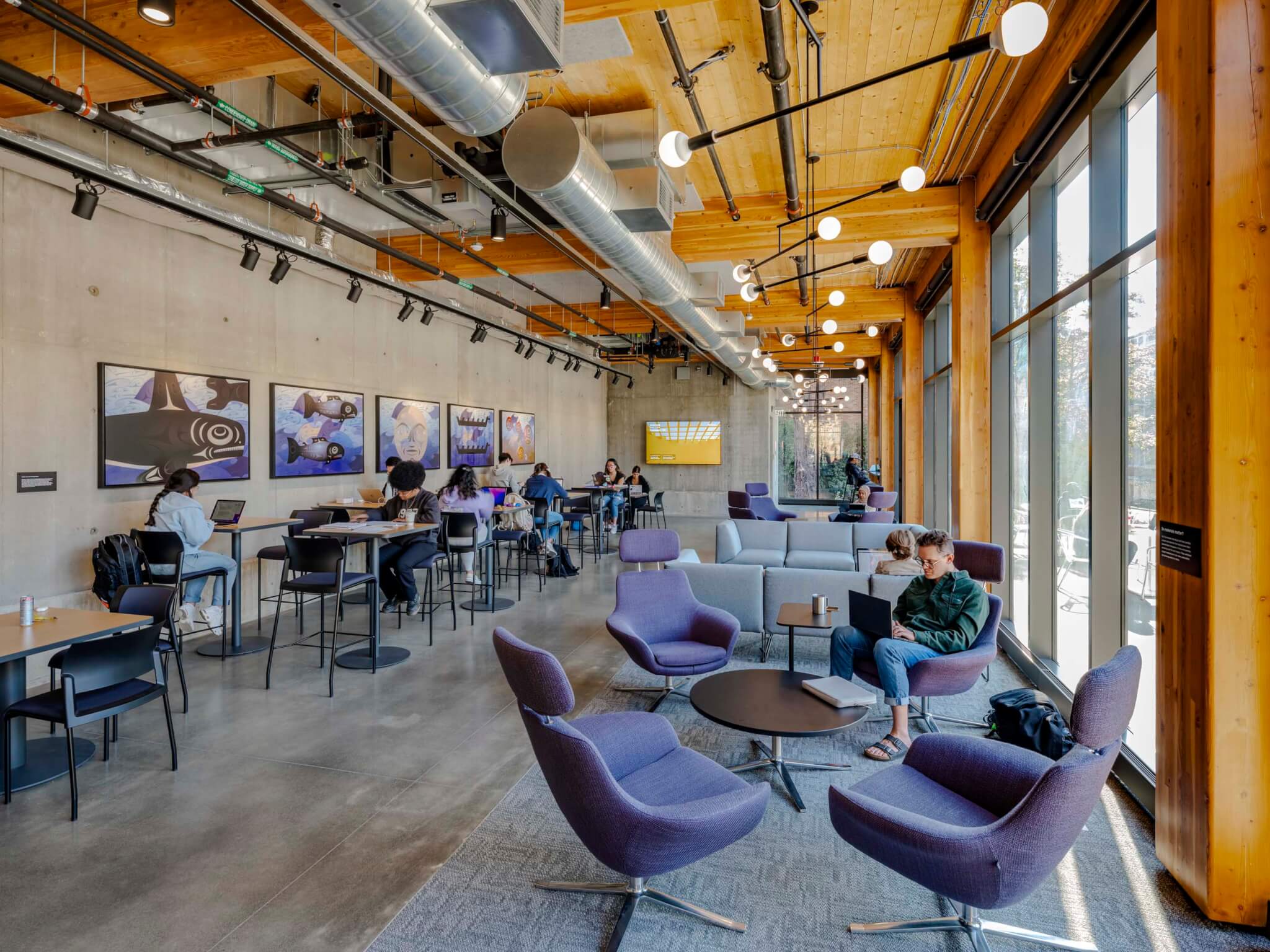
University of Washington has partnered with Aureus Earth, a financial incentive program encouraging developers to incorporate carbon storage and low-carbon materials into their designs. Through this partnership, Founders Hall will store 1,000 tons of carbon dioxide for decades, keeping it out of the atmosphere. In exchange, Aureus Earth guarantees carbon offsets for the project which will be purchased by companies looking to balance their carbon footprint. Founders Hall is the prototype for Aureus Earth’s new transaction program which will support long-term biogenic storage of carbon in mass timber buildings.








